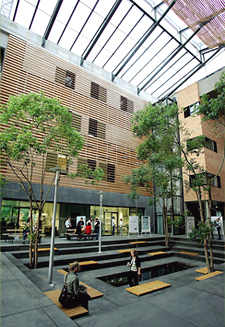Metabolic Ageing
Zeitraum
- ab 1. Januar 2009 (für 3 Jahre beantragt)
Leitung
- Prof. Dr. Dr. Bernd Fischer
- HD Dr. Andreas Simm
Partner
- PD Gerhard Behre, Clinic for Internal Medicine and Regional Centre for Cellular and Gene Therapy (LZG)
- Professor Holger B. Deising, Department of Phytopathology and Plant Protection
- Professor Thomas Hollemann, Department of Physiological Chemistry
- Professor Robin Moritz, Department of Zoology
- Junior Professor Susanne Rohrbach, Department of Pathophysiology
- Professor Werner Roos, Institute of Pharmaceutical Biology and Pharmacy
- PD Johannes Wohlrab, Clinic of Dermatology and Venereology
Förderung
- Land Sachsen-Anhalt
- 929.066,24 € (beantragt)
Zusammenfassung
The metabolic syndrome is the most important risk factor for morbidity and mortality in the advanced age due to cardio-vascular/renal and neurodegenerative diseases, diabetes and cancer, with a predicted dramatic worldwide increase within the next decades. Determinants for development and progression of the syndrome are (in addition to genetic disposition) prenatal epigenetic “metabolic imprinting”, postnatal nutrition-dependent modulation of the endocrine insulin/IGF/FoxO axis, and age-associated immunosenescence.
The working hypothesis of the proposed research cluster predicts that prenatal epigenetic imprinting, postnatal endocrine FoxO deactivation and late immunosenescence share substantial overlapping mechanisms. The cluster, structured in five interlinked projects combining basic and applied clinical research, will use diverse experimental model systems, including pluripotent embryonic and mesenchymal stem cells, cellular systems exemplary for major age-related pathomechanisms in myocardium and skin as well as whole organisms like Xenopus and honey bee, to disclose common regulatory mechanisms. Identification and characterization of overlapping regulatory components in an interdisciplinary system-spanning approach is both novel and indispensable to gain the necessary insights into key regulatory mechanisms of metabolic ageing. The strategy and research programme of the cluster will contribute to a better understanding of principles of ageing and development of new mechanistic strategies for therapy and for “successful” (= healthy) ageing.




